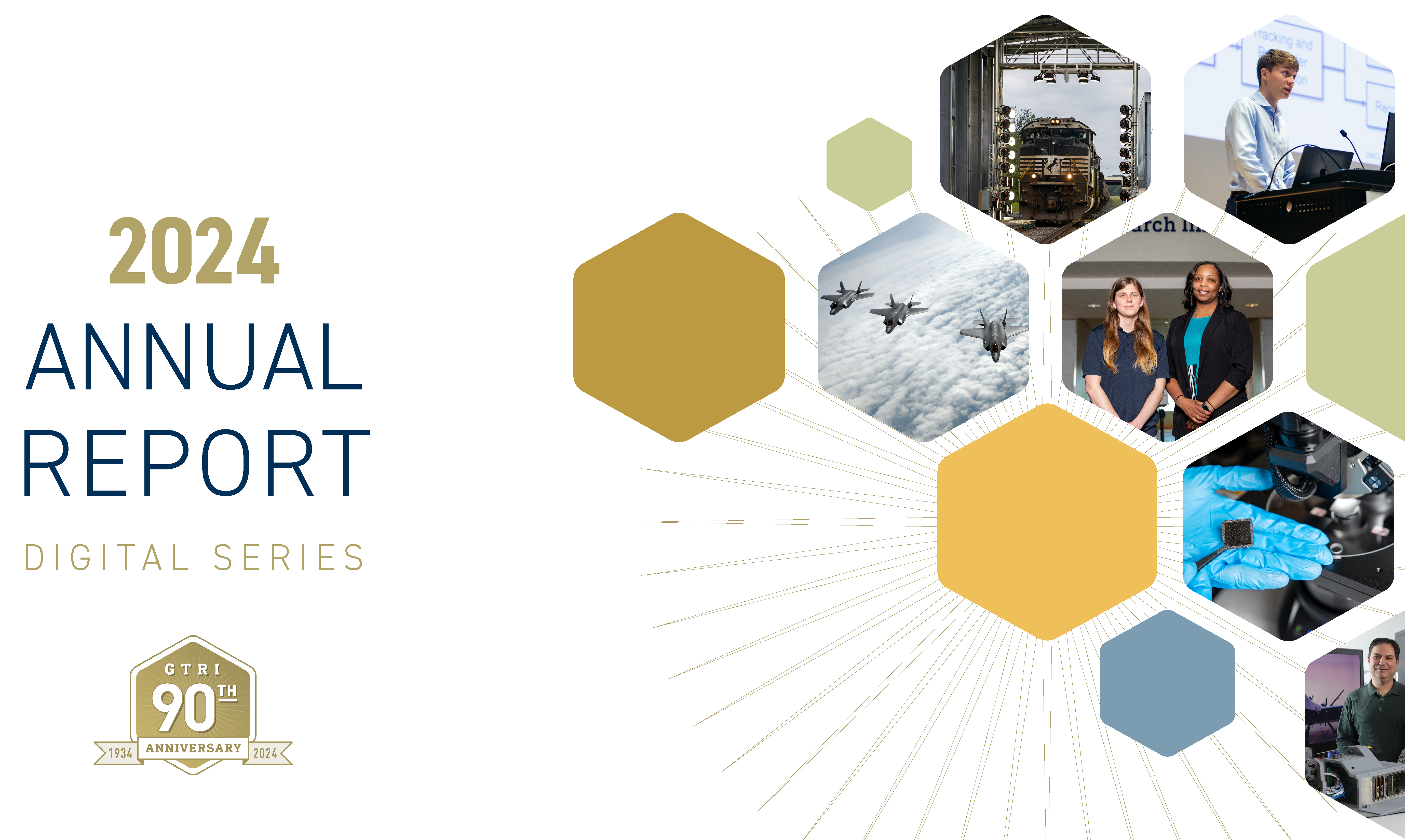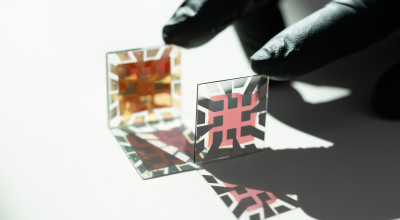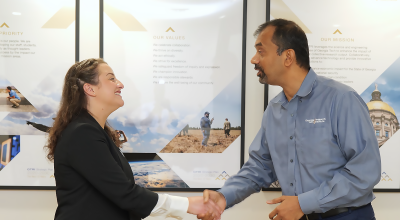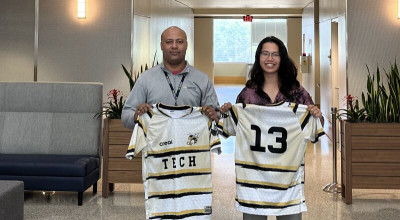GTRI News & Features
01.24.25
GTRI 2024 Annual Report
The digital edition of GTRI's 2024 Annual Report provides an overview of our accomplishments, research investments and outreach programs.
Read More >>Media Inquiries
GTRI News
- News stories
Georgia Tech researchers will soon be sending 18 photovoltaic cells to the International Space Station (ISS) for a study of how space conditions affect the devices’ operation over… Read More >>
- News stories
GTRI's latest Military Graduate Research Program (MGRP) cohort took on defense challenges with real-world impact. Three cohort members share their experiences. Read More >>
- News stories
On June 7, GTRI celebrated the U.S. Army's 250th birthday in Huntsville, Alabama, despite severe weather conditions. Read More >>
- News stories
GTRI is proud to welcome Stephanie Geigel, a U.S. Army veteran who joins our Office of the CIO through the Hiring Our Heroes program. Read More >>
- News stories
GTRI salutes its researchers who have recently achieved level advancement. Read More >>
- News stories
GTRI Operations Manager Rafael (Rafa) Dominguez, a self-described "rugby enthusiast," recently donated new uniforms to the Georgia Tech Rugby Club. Read More >>
- News stories
GTRI's Hives Early Career Independent Research and Development (IRAD) Program equips researchers who are in their first six years of employment to lead projects focused on… Read More >>
- News stories
The Georgia Institute of Technology (Georgia Tech) has named Tommer Ender as the interim director of the Georgia Tech Research Institute (GTRI), Georgia Tech’s applied… Read More >>











